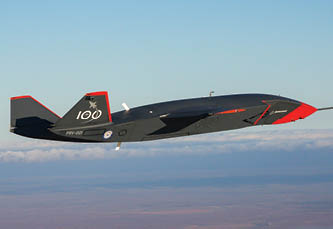Formula One racing on circuits may soon be a thing of the past with the sky becoming the new ‘track’.
Adelaide based company, Alauda Aeronautics was founded by Matt Pearson in 2016 and is the creator of the Airspeeder, a cutting edge electric vertical take-off and landing (eVTOL) aircraft.
The company recently unveiled its first crewed version of its flying racing car based on 1960s British Formula One race vehicles.
“Since there’s been cars, there’s been motorsport,” says the company. They are pioneering the future of air racing motorsport.
The Airspeeder Mark 4 is being hailed as the world’s fastest eVTOL aircraft that can reach a top speed of 360km/h in just 30 seconds.
The Airspeeder Mk4 evolved from the remotely-piloted Airspeeder Mk3, which has successfully completed more than 350 test flights and taken part in two Airspeeder demonstration races in South Australia in 2022.
“We have built the vehicles, developed the sport, secured the venues, and attracted the sponsors and technical partners. Now is the time for the world’s most progressive, innovative and ambitious automotive brands, OEM manufacturers and motorsport teams to be part of a truly revolutionary new motorsport,” said Matt Pearson, CEO of Alauda Aeronautics.
Airspeeder and Alauda Aeronautics state that flight testing with the Mk4 is already underway in South Australia, with the series’ first crewed races expected sometime in 2024.
“Every transformative moment in human transportation has been accelerated by motorsport,” said Airspeeder founder Matt Pearson. “As we stand on the cusp of the 21st century’s great leap forward in delivering on the promise of flying cars, the role competition plays are as important as ever.”
Airspeeder Mk4 is powered by a 1340hp turbogenerator that powers the aircraft batteries and motor, enabling travel over a 300km projected range. It will also use green hydrogen as its fuel which has potential to significantly reduce emissions and create a sustainable future for individual air travel.
Hydrogen is an ideal fuel for future aviation, and specifically personal urban air travel. It has a high energy density and can be stored in a lightweight, compact form, making it suitable for small aircraft; it’s also non-toxic and produces no emissions except pure water, so it doesn’t cause air pollution.
As for its propulsion system, the Airspeeder Mk4 utilises an artificial intelligence gimbal thrust technology that resembles the performance and handling qualities similar to that of a Formula One race car.
Alauda Aeronautics is looking beyond racing to a world where private flying cars are a daily reality and a viable means of urban transport.
Its team of engineers and designers, drawn from companies including Airbus, Boeing, Ferrari, MagniX and McLaren, are confident its technologies could make air travel faster, more efficient, more environmentally friendly and more accessible than ever before.
Matt Pearson says, “You will see these technologies on the racetrack. However, eVTOLs are already a trillion-dollar industry and we see a very substantial market for private flying cars emerging in the near future.
In conventional aerospace, there are about as many private jets as there are commercial jets in operation. We believe it could be the same with flying cars one day, with a roughly similar number of commercial taxis and private cars initially.
Once we can sell you a flying car for the same price as a Tesla, you’ll quickly see the balance shift. Today, private cars outnumber taxis by about 300 to one, so the potential for people to own and drive their own flying car one day is absolutely enormous. It’s a very exciting time.”
For more information about the Alauda Airspeeder Mk4 and the upcoming Airspeeder Racing Championship, visit Airspeeder –













